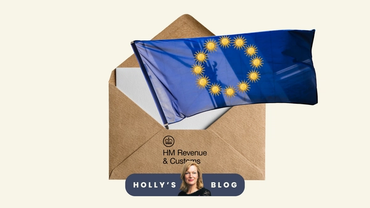Spring Budget 2024: The highlights
By Holly Mackay, Founder & CEO
6 Mar, 2024
On Wednesday 6 March, Chancellor of the Exchequer Jeremy Hunt unveiled the 2024 Spring Budget – likely to be the last monetary shake-up before the next General Election.

We’ve broken down the key takeaways you need to know - from changes to National Insurance to Child Benefit to a new British ISA, here are the headlines from the 2024 Spring Budget. Plus, scroll down for some detail on the things we didn't see that you might've been expecting.
Key takeaways from the Spring Budget
Inflation
What did he say?
The Office for Budget Responsibility (OBR) today forecast that UK inflation will fall below the Bank of England’s (BoE) target of 2% within the next few months. Good stuff.
The economy is also forecast to grow by 0.8% this year and 1.9% next year – again, good. We have flirted with a recession recently but this small growth should protect jobs and shore up some confidence in the economy. Not amazing – but equally not bad.
What does it mean for me?
This is really good news for all of us, particularly for those with mortgages or debt.
Though we won't see an immediate, meaningful drop in interest rates, with inflation slowly but surely getting back under control and close to the BoE's target 2%, there is light at the end of the tunnel for many homeowners battling against steep mortgage rates or people keeping up with personal loans. Phew. Bring it on!
Equally, when interest rates do eventually come back down to earth, this will mean the interest paid on savings will start to follow suit. So those with money stashed away in cash accounts will start to see their returns slip and might find that their money isn't going as far as it used to.
This is when investing starts to sound more appealing. If interest rates come down and cash rates aren't looking as rosy, then investing in the stock market can help you make sure your money isn't being eaten away by inflation.
National Insurance
What did he say?
Rather than a cut to Income Tax, the Chancellor instead focused his attention on National Insurance (NI). This is a less expensive move, as cuts to NI do not benefit pensioners.
However, the Chancellor announced a 2% NI reduction from 10% to 8% for the employed – which will take effect from April – and this will make a difference to 27 million workers. Combined with last year’s 2% NI cut, which came into effect this January, the average UK earner will pay £900 less National Insurance every year.
April’s cuts will mean £349 for someone on £30,000 a year, rising to £754 for a higher-rate taxpayer. NI for the self-employed will fall by 2% as well from 8% to 6%. However, #spoileralert, there was no change to the freeze in tax thresholds which will see more of us dragged into higher tax brackets throughout the year. Less nice.
What does it mean for you?
National Insurance is the poor relation to Income Tax when it comes to headline-grabbing cuts, however a 2% fall is not to be sneezed at and will make a notable difference to workers, particularly as we’ve just had a 2% cut. For those earning £30,000, it represents an extra £349 in your pocket each year; for those on £40,000 it’s an additional £549 and for higher rate taxpayers on £60,000 or more it’s an extra £754.
National Insurance is the tax we pay which covers the State Pension and other allowances such as Maternity Allowance. For those who started work after 2016, you need 35 years of contributions to qualify for the full new State Pension. It’s quite easy to check your State Pension record at HMRC online.
Although we’re going to be paying less – hooray! – the Chancellor giveth with one hand and taketh away with the other. Less hooray. The big and poorly understood spanner in the works are frozen tax thresholds, which sound pretty academic but in fact mean that most of us pay more tax over time. Here’s why.
Our Personal Allowance is £12,570 – this is how much we can earn before we pay tax. But it’s frozen until 2028. And inflation gradually pushes our wages up. So someone earning say £12,000 today might see their income rise to £13,000 in a few years’ time – and bing – they’re a taxpayer. The same is true for higher rate earners – this band is currently frozen at £50,270. So if your salary has gone up from £48,000 to £52,000 – you’re suddenly a higher rate taxpayer.
Estimates from the OBR are that 1.1 million people will be dragged over the Personal Allowance threshold and 800,000 will be dragged into the higher rate threshold this year.
Finally, National Insurance benefits are only for workers. Unlike Income Tax cuts, any NI cuts will not benefit pensioners or those earning income from cash savings or rental properties.
Here's what Jason Moss, Independent Financial Adviser at Harvest Associates, had to add:
It's worth remembering that even with a slight reduction in National Insurance, it pales in significance to the stealth tax generated from the frozen Personal Allowance and tax thresholds.







